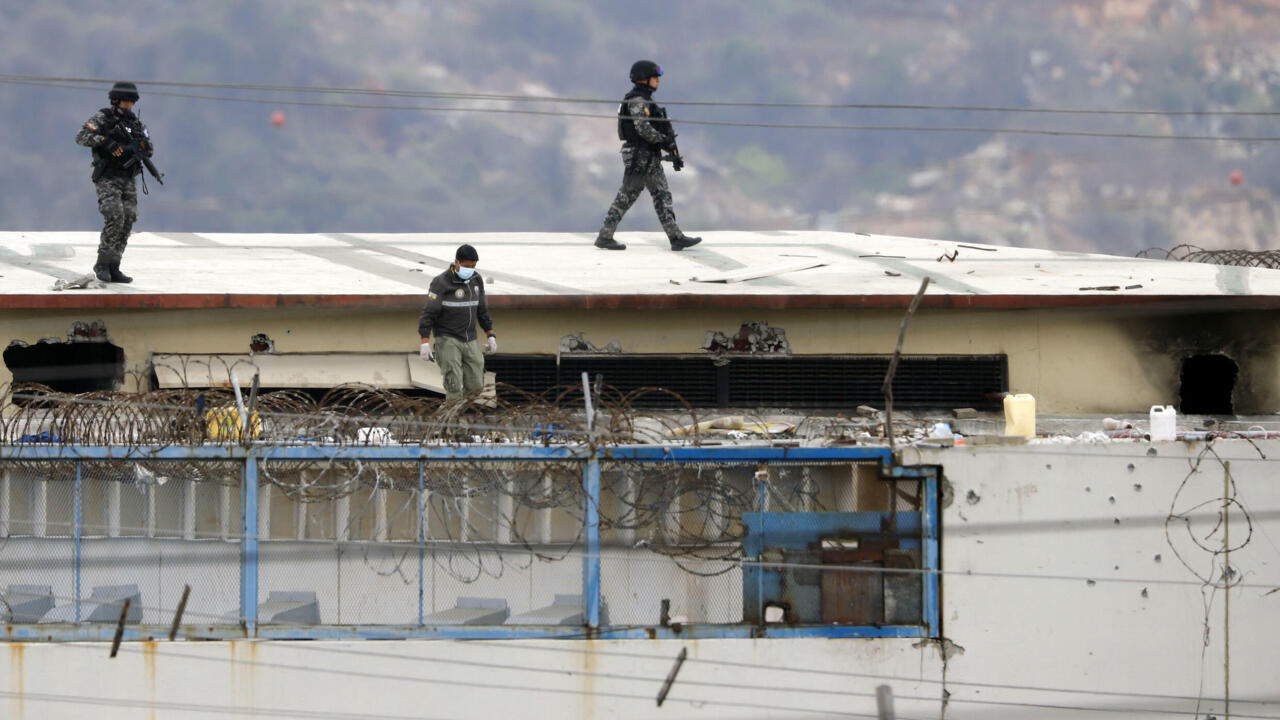A riot between inmates, which began Friday, November 12, in Guayaquil prison in southwest Ecuador left 68 people dead, according to an official source.
The vast penitentiary center had already been the scene, at the end of September, of one of the worst massacres of prisoners in Latin America.
"According to preliminary information, nearly 68 people deprived of their liberty (detainees) have been killed and 25 others injured," the Attorney General's office announced on Saturday.
A first assessment of the police reported 58 deaths in this violence, marked by acts of great "savagery" according to the authorities.
Rival gangs
"These events are the result of a territorial dispute between criminal gangs inside the penitentiary," police chief Tannya Varela told a press conference earlier on Saturday.
"What happened yesterday in a more violent way than usual started around 7:00 p.m., when, following an alert, the national police force implemented the protocols to contain the violence inside the penitentiary center. ", she explained.
"The intervention of the police to try to restore order in the prison" saved lives ", assured for his part Pablo Arosemena, governor of the province of Guayas, whose capital is Guayaquil.
"Help us"
Images broadcast on the networks, the authenticity of which has not been confirmed from an independent source, showed inmates, in the middle of the night in a courtyard inside the prison, beating sticks on a pile of bodies piled up, inanimate and in the process of being consumed in flames.
"We are locked in our pavilion. They want to kill us all", called for help, in another video, a prisoner of the block attacked.
"Please share this video. Look there is a drone (in the sky). Please help us!" Pleaded this inmate, with repeated detonations in the background.
More than 100 dead at the end of September
On September 28, 119 people died in the same circumstances in the same prison in Guayas 1, the largest massacre in Ecuador's prison history and one of the worst in Latin America.
Some detainees had been dismembered, beheaded, or burned in violent clashes between gangs linked to drug trafficking and Mexican cartels.
After the massacre, a dramatic worsening of the country's long prison crisis, Ecuadorian President Guillermo Lasso declared a "state of emergency" in the 65 Ecuadorian prisons, notably with the deployment of significant military reinforcements.
These prisons can accommodate 30,000 people but are occupied by 39,000 inmates, an overcrowding of 30%.
Weapons of all kinds, drugs and cell phones circulate there in large numbers.
They are the scene of a bloody rivalry between in particular the formidable Mexican cartels of Sinaloa and Jalisco Nueva Generacion.
Ecuador faces an increase in drug-related crime, with nearly 1,900 violent deaths since the start of the year, particularly in Guayaquil, a port city and economic center of the country.
In the huge prison on the outskirts of the city, which houses 8,500 inmates and whose overcrowding reaches 60% here, according to official figures, the violence has not stopped since, despite multiple announcements and constant communication from the government on this theme of the fight against insecurity.
After the September incidents, fifteen other detainees were killed in different incidents.
With another Friday night massacre, riots in Ecuadorian prisons have left more than 308 dead since the start of the year.
In the early hours of Saturday morning, as was the case during the September 28 massacre, families of detainees gathered in front of the Guayaquil penitentiary, trying to hear from their loved ones or shouting in despair at the news of the death of one of them.
With AFP
The summary of the week
France 24 invites you to come back to the news that marked the week
I subscribe
Take international news everywhere with you!
Download the France 24 application
google-play-badge_FR

